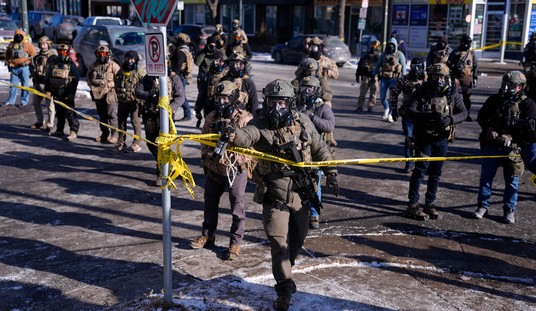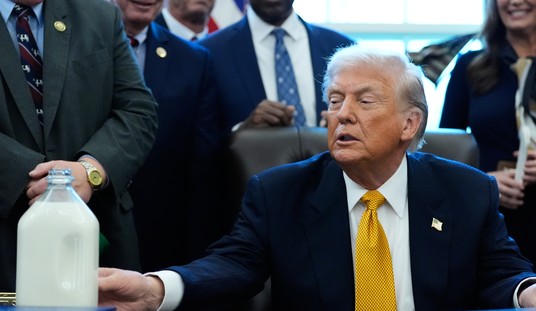So far, all of the higher-level officials at the IRS have all claimed that the targeting of conservative groups evolved organically from a few low-level employees facing an overwhelming rush of new tax-exempt applications in early 2010. Data has now shown that the supposed “flood” didn’t materialize for at least another several months, and that dozens of IRS agents had knowledge of this effort. The Wall Street Journal reviewed transcripts of Congressional investigations, and puts the final nail in the coffin for the “low-level employees” dodge — and names at least one name:
Two Internal Revenue Service employees in the agency’s Cincinnati office told congressional investigators that IRS officials in Washington helped direct the probe of tea-party groups that began in 2010.
Transcripts of the interviews, viewed Wednesday by The Wall Street Journal, appear to contradict earlier statements by top IRS officials, who have blamed lower-level workers in Cincinnati.
Elizabeth Hofacre said her office in Cincinnati sought help from IRS officials in the Washington unit that oversees tax-exempt organizations after she started getting the tea-party cases in April 2010. Ms. Hofacre said Carter Hull, an IRS lawyer in Washington, closely oversaw her work and suggested some of the questions asked applicants.
“I was essentially a front person, because I had no autonomy or no authority to act on [applications] without Carter Hull’s influence or input,” she said, according to the transcripts.
Mr. Hull could not be reached for comment.
Who is Carter Hull? Carol Platt Liebau takes a look at his biographical information, but that won’t tell us as much as his position with the IRS org chart. He’s prominent enough within the IRS to write its training materials, and apparently well-known enough in Cincinnati to be the go-to guy on drafting the intrusive and harassing questions asked of conservative groups applying for tax-exempt status.
That would tend to indicate that the effort did not have its genesis among these employees. It’s probably rather rare that a low-level field agent would call Washington for legal advice without at least clearing the call with a supervisor first. And this, which has already been published, makes it look like the genesis of the effort didn’t happen in Cincinnati at all:
In his interview with congressional investigators, he said a local manager—whose name was redacted in the transcripts—asked him to find all the tea-party applications in the office’s files, both pending and closed. The manager asked him to use the phrase “tea party” to conduct the search.
Around the same time, the local manager “said Washington, D.C., wanted seven” cases, Mr. Muthert said in the transcript. That month, he said, he “batched up” seven of the cases for “EO Technical,” a unit of the Exempt Organizations Division in Washington, then headed by Ms. Lerner, according to his interview.
Around May of 2010, Mr. Muthert said, another local official asked him to locate a couple more applications to send to Washington. Over the next two months, Mr. Muthert said, he located about 40 tea-party cases after expanding his search to include the terms “patriot” and “9/12.”
This strongly suggests that the idea started in Washington DC. That would explain why agents in Cincinnati would call Washington DC for legal advice on how to grill conservatives, too. None of this should be terribly surprising, either; bureaucracies don’t generate ideas from the bottom up but the top down.
Who gave Carter Hull his orders? What did he do with the knowledge that Cincinnati agents were targeting Tea Party groups on behalf of the IRS headquarters? I’m sure a House committee or two will be interested in talking with him to find out.







Join the conversation as a VIP Member